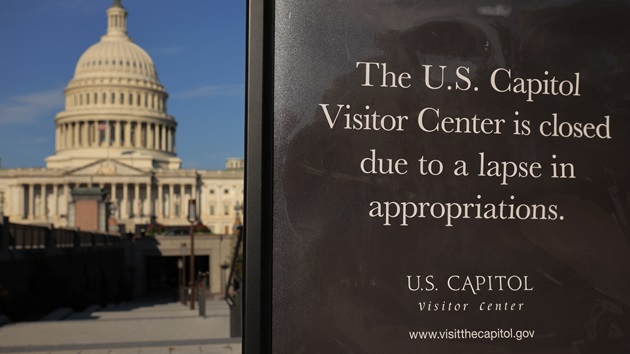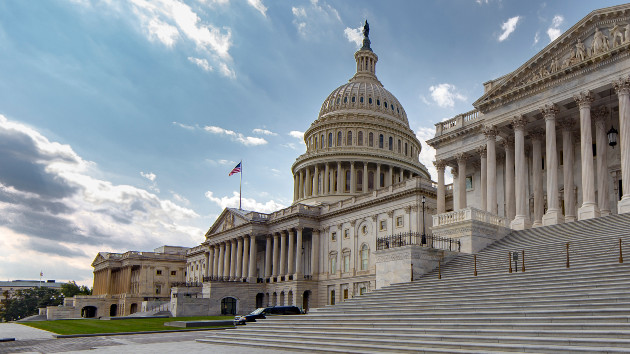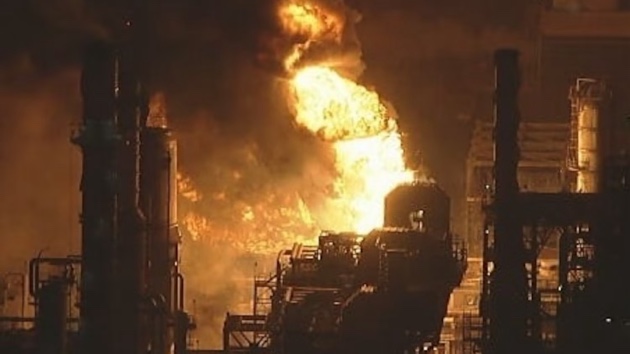How effective are gas tax holidays at helping motorists’ wallets?
Written by luck on March 27, 2022
(NEW YORK) — As gas prices continue to soar across the country, three states have opted to temporarily waive their gas tax to provide relief for motorists. Other states are mulling similar plans.
Last week, Georgia Gov. Brian Kemp and Maryland Gov. Larry Hogan signed legislation that suspended their states’ gas taxes for a limited period. On Thursday, Connecticut Gov. Ned Lamont signed a legislative package that included a tax holiday on the state’s gas tax during the spring.
While the move may save drivers around 30 cents per gallon at the pump, economic and policy experts warn that it is only a stop-gap solution.
“They may not lower [gas] consumption and they might increase it,” Patrick De Haan, the head of petroleum analysis at gas price app GasBuddy, told ABC News of the tax holidays. “I would love to pay less at the pump too, but this is a Band-Aid solution.”
The national average price for a gallon of regular gasoline is $4.24 as of March 25, according to AAA. Some states, particularly those on the West Coast, are seeing average prices of over $5 a gallon, AAA’s data shows.
Last month, the national average price was $3.57 a gallon and a year ago, it was $2.87, according to the association.
Georgia’s effort suspends its tax of 29 cents a gallon until the end of May, Maryland’s rule suspends its tax of 36.1 cents per gallon until mid-April and Connecticut’s rule suspends the state’s tax of 25 cents per gallon until June 30.
The governors of the three states said drivers were feeling the pinch every week at the pump and they needed to take immediate action.
“We will continue to use every tool at our disposal to provide relief for Marylanders,” Hogan said in a statement last week after signing his state’s legislation.
The leaders also said their state budgets have the money from surpluses and the federal relief package to offset the lost tax revenue.
“Connecticut is in a stronger fiscal position than ever before, and I am determined to use every tool available to provide relief for our residents,” Lamont said in a statement.
Other state leaders have said they are considering similar gas tax holidays, including ones in Michigan and California.
Giacomo Santangelo, senior lecturer of economics at Fordham University, told ABC News the nation’s rising gas prices are caused by a number of factors outside of the control of the states, including the global supply chain problems and the ongoing Ukraine-Russian conflict.
Political pressure and desperation from commuters, businesses and other motorists have forced state leaders to think outside of the box, he said.
“The bottom line is gas prices aren’t going to go down anytime soon and people do need help,” Santangelo told ABC News.
Santangelo, however, said that those leaders are taking a big risk by implementing a temporary gas tax holiday. There is no indication that gas prices will return to under $4 a gallon in the coming weeks, he noted.
“If what they are doing is they are giving a 25-cent break on their gas, then what happens when gas goes up 25 cents in a few weeks anyway? You’re now back in the same situation and the government is in a worse place. There are a lot of unknowns,” Santangelo said.
De Haan said there is a potential longer-term problem by creating a gas tax holiday — increased demand for gas when supply is still low. He said temporary tax suspension will spur some drivers to take trips that may not have been necessary, and they will gas up when they won’t need to.
“The right way to handle this situation is not to reduce the price, it’s to tell motorists to reduce consumption,” he said.
Santangelo said that lowering the price through a gas tax suspension does set up expected demand from motorists. He noted that this isn’t the first time the country has experienced surging gas prices and it won’t be the last time and a gas tax holiday may not work, especially if supply doesn’t change.
“Demand was going to go up anyway, because we’re heading into the summer season. The question we have to ask is, ‘Do we want to have demand so high and risk shortages?'” he said.
Santangelo cautioned that solutions involving rebates or cash incentives could also create this demand.
California Gov. Gavin Newsom proposed a program last week that would provide $400 per vehicle to offset rising gas prices, for up to two vehicles per resident. The money would be funded with the state’s budget surplus.
“It could turn into is something that the government keeps getting sucked into,” Santangelo said. “You’re able to give $400 now but would you be able to sustain that if prices don’t go down?”
Representatives for Kemp, Hogan and Lamont told ABC News that their gas tax suspension proposals were planned out with the intention of helping their state’s motorists while at the same time avoiding any long-term economic problems.
They also stated their individual state surpluses would cover the lost revenue generated from the taxes, which generally pay for road repairs and other transportation costs.
“At this point, we have seen no issues related to supply and demand,” Michael Ricci, a spokesman for Hogan’s office, said in a statement to ABC News on Friday.
A spokeswoman for Kemp’s office also said Georgia isn’t seeing any increases in gas demand since the gas tax holiday went into effect. Kemp tweeted Friday that the state’s average gas price dropped by 24 cents a gallon.
“We’re going to keep working to get Georgians relief from sky-high prices & inflation!” he tweeted.
Max Reiss, a spokesman for Lamont, told ABC News that the state’s gas tax suspension is part of an overall $100 million package to help residents, and included a one-week clothing sales tax suspension and free bus rides for a month.
“What our residents are looking for is that their government is listening to their concerns. We are trying to do something in our power to do something,” Reiss told ABC News.
Reiss added that the state continues to push residents to lower their demand for gasoline with programs such as tax incentives for electric car purchases.
The economic experts warned that there is no way to determine when gas prices will come down, especially if the Ukraine-Russia conflict continues into the summer. More importantly, they warned that gas prices will likely decrease at a far slower rate compared to the rate they have jumped in recent weeks.
De Haan said it is imperative that states not rely on the gas tax holidays as their only solution during the gas crisis and that they need to encourage motorists to curb their driving plans as best they can.
“There’s not going to be a quick shift to lower prices and we all need to be ready for that,” he said.
Copyright © 2022, ABC Audio. All rights reserved.





